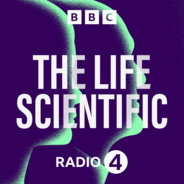Elizabeth Fisher, Professor of Neurogenetics at University College London, spent 13 years getting her idea – finding a new way of studying genetic disorders – to work. She began her research career at a time, in the 1980s, when there was an explosion of interest and effort in finding out what genes did what, and which of them were responsible for giving rise to the symptoms of various neurodegenerative conditions. Elizabeth has been particularly interested in those in which there are chromosomal abnormalities, like Down syndrome and Turner syndrome, as distinct from specific genetic disorders. Her work has helped in the understanding of what’s different about the genetic make-up of people with these conditions, and what new therapies might be developed in the future. Lizzie Fisher talks to Jim al-Khalili about how she was inspired to study genetics while standing on the red carpet, how she kept going during the 13 years it took to introduce human chromosomes into mice and why she's starting the process all over again.

Wissenschaft & Technik
The Life Scientific Folgen
Professor Jim Al-Khalili talks to leading scientists about their life and work, finding out what inspires and motivates them and asking what their discoveries might do for us in the future
Folgen von The Life Scientific
348 Folgen
-
Folge vom 12.11.2019Elizabeth Fisher on chromosomes in mice and men
-
Folge vom 05.11.2019Demis Hassabis on artificial intelligenceIn the 200th episode of The Life Scientific, Jim Al-Khalili finds out why Demis Hassabis wants to create artificial intelligence and use it to help humanity. Thinking about how to win at chess when he was a boy got Demis thinking about the process of thinking itself. Being able to program his first computer (a Sinclair Spectrum) felt miraculous. In computer chess, his two passions were combined. And a lifelong ambition to create artificial intelligence was born. Demis studied computer science at Cambridge and then worked in the computer games industry for many years. Games, he says, are the ideal testing ground for AI. Then, thinking memory and imagination were aspects of the human mind that would be a necessary part of any artificially intelligent system, he studied neuroscience for a PhD. He set up DeepMind in 2010 and pioneered a new approach to creating artificial intelligence, based on deep learning and built-in rewards for making good decisions. Four years later, DeepMind was sold to Google for £400 million. The company’s landmark creation, Alpha Go stunned the world when it defeated the world Go champion in South Korea in 2016. Their AI system, AlphaZero taught itself to play chess from scratch. After playing against itself for just four hours, it was the best chess computer in the world. (Humans had been defeated long ago). Many fear both the supreme intelligence and the stupidity of AI. Demis imagines a future in which computers and humans put their brains together to try and understand the world. His algorithms have inspired humans to raise their game, when playing Go and chess. Now, he hopes that AI might do the same for scientific research. Perhaps the next Nobel Prize will be shared between a human and AI? Producer: Anna Buckley
-
Folge vom 29.10.2019Saiful Islam on materials to power the 21st centuryNot so long ago, all batteries were single use. And solar power was an emerging and expensive technology. Now, thanks to rechargeable batteries, we have mobile phones, laptops, electronic toys, cordless power tools and other portable electronic devices. And solar power is reducing our reliance on carbon-based fossil fuels. None of this would have been possible without a deep understanding of the chemistry of materials that have particular properties – the ability to turn sunlight into energy for example. Professor Saiful Islam of the University of Bath tells Jim Al-Khalili how ‘the Woodstock of physics’ got him excited about material science and how his research on the properties of materials is helping to power the 21st century with renewable energy and could dramatically reduce the cost of making solar panels. Producer: Anna Buckley
-
Folge vom 22.10.2019Adrian Owen on scanning for awareness in the injured brainNeuroscientist Adrian Owen has spent much of his career exploring what he calls ‘the grey zone’, a realm of consciousness inhabited by people with severe brain injuries, who are aware yet unable to respond to those around them. It's this inability to respond which has led doctors to conclude that they are unaware. In the late 1990's, Adrian started to question the assumption that they lacked awareness and a chance discovery set him on a novel path of enquiry - could some of these patients be conscious or aware even though they don’t appear to be? His research has revealed that some are, and he’s pioneered techniques to help them to communicate with the outside world.This emerging field of science has implications, not only for patients but, for philosophy and the law.A Britain scientist, Adrian now runs a research programme at the Brain and Mind Institute at Western University in Canada, dedicated to reaching people in this ‘grey zone’. Producer: Beth Eastwood
